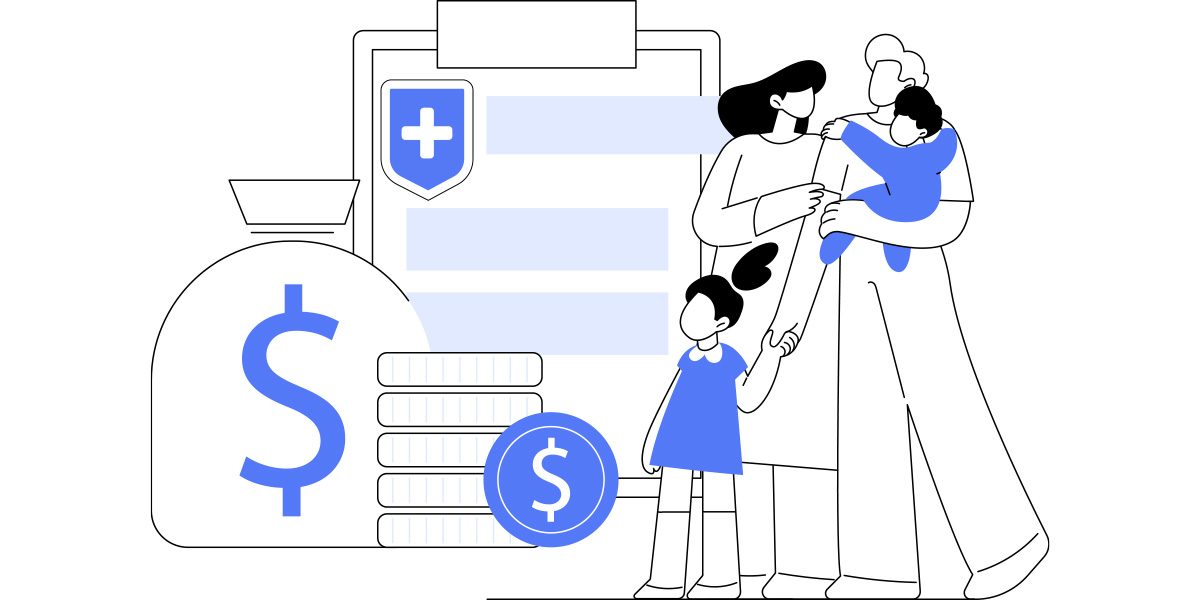Life Insurance is an important part of a financial plan, providing essential protection and peace of mind for you and your loved ones. However, choosing the right policy can be overwhelming, given the wide range of options available. In this blog post, we will discuss the importance of life insurance and the differences between various types of plans, enabling you to make an informed decision based on your unique needs and circumstances.
Here are some of the reasons you might think about purchasing life insurance:
To Pay Off a Mortgage
Paying off a mortgage is one of the most common reasons we hear when talking with clients about life insurance. Some members of the Bedell Frazier staff have term insurance for this very reason. You may not want to leave one spouse to cover the bills of two if something should happen. The payout from a life insurance policy could allow the surviving family to stay in the home without having to worry about making a mortgage payment.
Cover College Education Costs
Life insurance proceeds can help pay for college for children in the event of the death of a parent. To plan for this, you would want to calculate the cost out to when the child will start school and factor in which college you think they may attend. Prices can fluctuate widely between state schools and private colleges, you also need to consider in-state or out-of-state. Be sure to factor in tuition, room and board, books, and other miscellaneous costs when considering the amount you may want to insure. Our financial planning software can create a college calculator if you are interested in estimating costs for higher education. We have seen college education costs increase by almost 6% annually since the 1980s.
Income Replacement
If you are a single-earner household, you may want to consider life insurance for the working member in the event that they pass away prematurely. Life insurance is a conversation that a two-income household should have as well, and especially if there is a large discrepancy between earners.
Leave a Legacy
You may wish to leave someone or a charity money when you pass away, and life insurance is one way you can accomplish this. Some people also use life insurance as a way to cover their funeral costs and other expenses.
Types of Life Insurance
Term Life Insurance
Term life insurance is the most inexpensive form of life insurance as you are only buying insurance coverage. There is no cash value to these policies. This can be a good fit for those just starting out in their career, those who have young children, and those with a targeted insurance coverage need. The policy stays the same price for a coverage period; common insurance policy lengths are 5, 10, 20, & 30 years. If the insured dies within the policy’s term, the beneficiaries receive the death benefit tax-free.
The younger you are typically, the more inexpensive the policies tend to be, good for young families with limited cash flow. Life insurance policies become more expensive to originate or renew the older you are. Renewing later in life, when you also might have developed some health issues, can be pricey.
Whole Life Insurance
A whole life insurance policy provides lifelong coverage and level premiums that build cash value at a fixed rate, usually 1% to 3.5%. It is designed to be paid into your “Whole Life” along with the insurance coverage that you get from your whole life once the cash value has built up over time. At a certain point, you can take loans out against the whole life policy. Once you die, the beneficiaries of the life insurance policy usually will receive the death benefit payout tax-free. This can be a good policy for someone that has a high income who is already maxing out their 401k, or who wants to help pay their estate taxes when they die.
Universal Life Insurance
Universal life insurance allows you to adjust the premiums as your life changes (within limits) and has a cash value that grows at a market rate. The premiums generally increase over time, unlike whole life with level premiums, which means you have to pay more premium or subtract from your death benefit. Universal Life is usually cheaper than whole life but lacks the guaranteed growth of the cash value.
There is also indexed universal life insurance where the performance is tied to a stock or bond index such as the S&P 500.
Variable Universal Life Insurance
A variable universal life insurance policy is tied to an investment account of stocks or bonds. The variable life insurance premiums are usually fixed over the life of the policy. The cash value and death benefit of the policy grow based on the market performance of the sub-accounts. This type of policy has the potential for higher returns based on market performance. You can lose money if poor investments are chosen.
Understanding the differences between the various life insurance policies can help you make a decision that aligns with the needs of you and your family. Permanent life insurance coverages are generally considered when there are special circumstances. There are fees and commissions involved with these products that erode the returns. For general coverage needs you may have, we suggest exploring term insurance, and for the savings component, invest in individual stock and bonds or exchange-traded funds.


